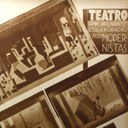0139 Damned Words: The Use and Disuse of "Modern" as an Attribute for the Interpretation of Folk Customs in Theatrical Revue Stage and Costume Design at the Turn of the 1930s in Portugal
Identifiers (Article)
Identifiers (Files)
Abstract
O Notícias Ilustrado was published from 1928 to 1935, coinciding with the emergence of Salazar's dictatorship. Reporting the cosmopolitan life, it described itself as "the only graphic newspaper of modern and European appearance". Its collaborators included figures from among the Modernist generation that would later be associated with the regime's cultural policy. On its pages one can see a renewal of the theatrical revue format, it covered elements that were a repercussion of the Modernists' interest for folk art and the rediscovery of the national heritage. A straightforward analysis reveals that this reinterpretation of folk traditions was mainly addressed as modern up to the moment when an official culture policy was set; from 1933 onwards this modernity was veiled. In this analysis it could be perceived how similar works, by being addressed differently, could imply the different contexts of 1930s Portugal.
Statistics


License

This work is licensed under a Creative Commons Attribution-NonCommercial-NoDerivatives 4.0 International License.



